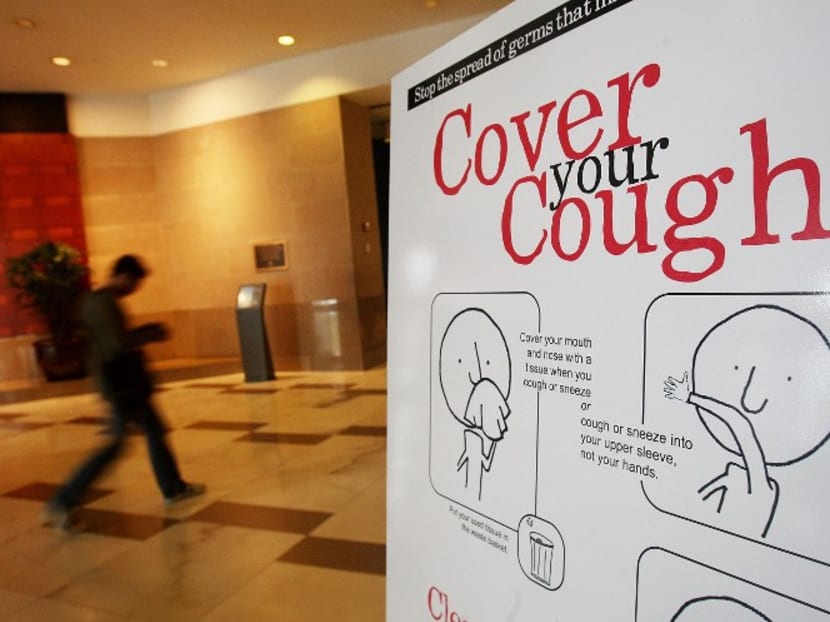Seriously, don’t come to work if you’re sick
There’s nothing more selfish you can do than come to work sick.

This file photo shows a government sponsored poster warning of the spread of the flu in an office building in New York City. Photo: AFP
NEW YORK — There’s nothing more selfish you can do than come to work sick.
You may get a gold star for showing your sniffling face at the office and soldiering through the workday to prove your value, but everyone around you just gets sick. You’re an inconsiderate work hazard.
When people bring their infectious illness to work, it spreads, and when sick people don’t have a financial incentive to show up to work, fewer people get sick, according to a new working paper by the nonprofit National Bureau of Economic Research.
The researchers studied US cities with paid sick-leave mandates and, using Google Flu Trends data at the city and state level from 2003 to 2015, looked for changes in flu rates after those mandates went into effect.
The cities that adopted paid sick-leave mandates in that time frame saw flu cases drop by about 5 per cent after their laws took effect. For a city of 100,000 people, that comes out to 100 fewer infections per week, the researchers estimate.
“You see people who are at the workplace sneezing and potentially infectious. That’s how diseases spread,” said Dr Nicolas R. Ziebarth, an assistant professor at Cornell University and one of the study’s researchers.
For most of us, staring at a computer through the fog of illness is torture, and does nothing to help us recover. Yet 3 million people, or 2 per cent of the US population, bring their ailments to work each week, a phenomenon the researchers dubbed ”contagious presenteeism.”
Many do so because of financial pressures; nearly a third of workers have no access to paid sick leave, according to the Bureau of Labour Statistics. The other two-thirds, who have the luxury of taking a sick day, need to stop making excuses for showing up at work sick.
Almost half of workers say they worry work will pile up if they stay home sick. People who find their jobs engaging also have a hard time staying home, finding work more fun than submitting to the reality of a sick day.
“Some people want to appear tough and signal that they are hard-working,” said Mr Ziebarth.
But those diligent workers aren’t just showing their commitment, they’re also showering their coworkers with germs; the modern open office plan is a breeding ground for contagious illnesses. Worst of all, people tend to come to the office at the beginning of an illness, when they’re at their most contagious but still feeling well enough to get a little work done.
“You have over-the-counter drugs that suppress your symptoms, but they don’t suppress contagiousness,” Mr Ziebarth pointed out.
Employers, for their part, should encourage ailing workers to stay home. Presenteeism, showing up at work ill, whether they’re contagious or not, costs companies about US$150 billion (S$205 billion) a year, one study estimated. A worker is about a third as productive when he’s slumped in a desk chair working at half-speed as he is when he’s healthy, say researchers. By staying home when he’s sick, he can get better faster. The rest of the workforce can remain in full, and fully productive, health.
And diligent workers who absolutely must meet a deadline or finish a life-or-death project should at least self-quarantine. Telecommuting has become an increasingly acceptable way to work, and 60 per cent of employers let employees work from home, according to the Society for Human Resource Management’s annual Employee Benefits Survey.
“It’s good to change the culture of how people see each other,” said Mr Ziebarth. “You can signal hard work in a lot of different ways. It’s not the right way to go into the office and spread diseases.”
In fact, we all need to do our part to stigmatise coming to work sick. If a coworker comes in complaining of a tickle in his throat or clammy hands, say: “Go home! Nobody wants you and your gross germs.” BLOOMBERG





